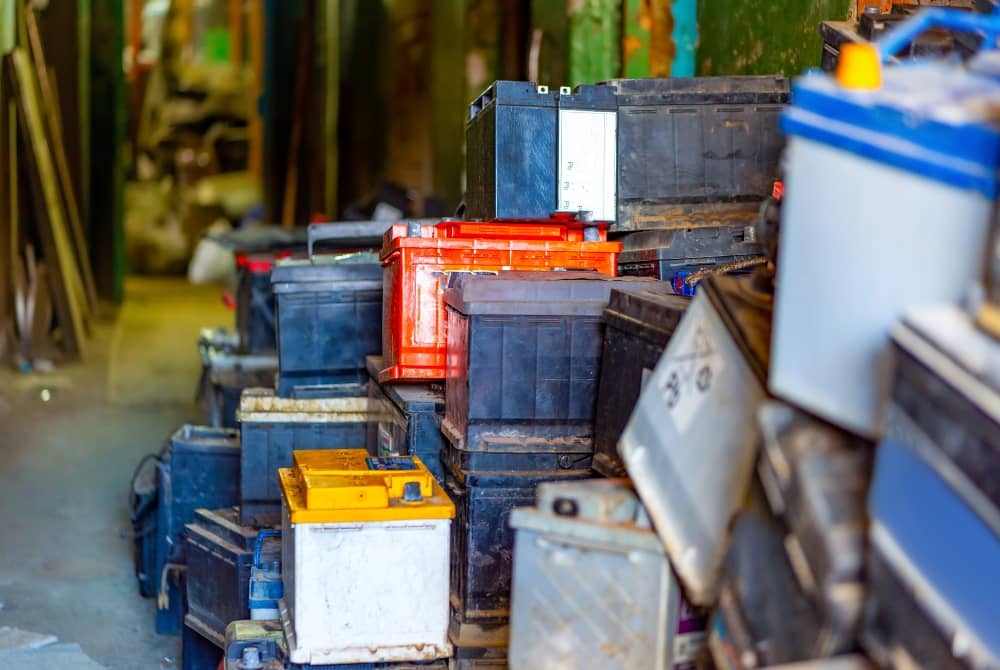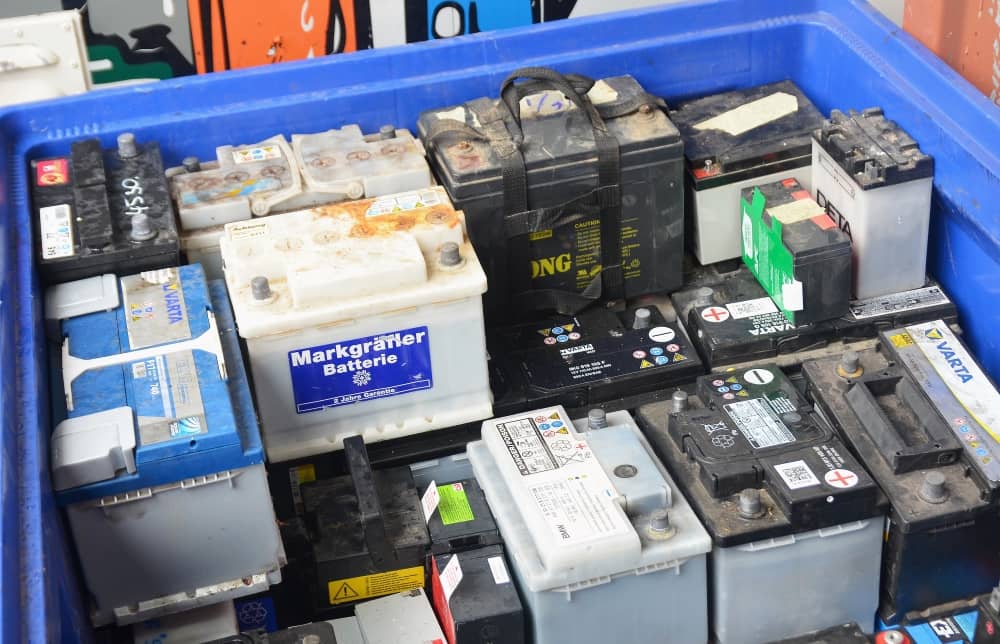
Car batteries contain hazardous chemicals that can cause illness to human health if they are not disposed of properly. They are recyclable and should not be disposed of in your waste bin. This is because Lead acid is commonly found in car batteries, and it’s one of the most hazardous components in a battery. It must be disposed of carefully to avoid causing health problems to humans and the environment.
When lead acid leaks into water bodies, it can cause death to fish and other small aquatic plants and animals. The acid causes major damage to both water bodies and the surrounding areas. Here is a guide on safely disposing of your car battery.
How to Handle Car Batteries Safely
Car batteries contain hazardous materials; therefore, you must take the necessary precautions when handling them. The first thing to do is make sure your hands are protected. Wear protective gloves when handling car batteries since you don’t want to expose yourself to the toxic chemicals in the battery. Do not throw a battery into your home recycling or backyard waste bin, as some batteries’ chemicals can cause damage to the environment. Instead, take the battery to a recycling centre in Perth for proper disposal.
Also, avoid fixing a car battery on yourself, as it is dangerous and can cause burns or even explosions. In addition, you should keep car batteries away from ignition sources, flames, and sparks that can cause an explosion since they are flammable. Additionally, during the recycling process, you must ensure that the recycling centre you take the battery to is certified by the Council for Recycling. Only dispose of car batteries at certified recycling centres, as it is illegal to take them into a backyard waste bin or bin located in a residential area.
Where Can You Dispose Of Dead Car Batteries
Some people think they can throw away their dead car batteries in the garden or even dump them in their backyard skip bin, but this is not safe. A leaking car battery can cause acid burns to your skin and even corrosion in water bodies. If a car battery is thrown away, it can pollute the soil and contaminate the ecosystem by releasing its toxic chemicals into water bodies.
Also, if the battery leaks in a landfill, its chemicals can leak through cracks and contaminate the surrounding soil. It can also seep into the groundwater, used for many purposes like drinking water and irrigation. Therefore, you should ensure your dead car batteries are disposed of safely. Car batteries contain lead and sulfuric acid, which can cause serious contamination if they leach into the environment. So the best thing to do with your dead car batteries is to give them to a recycling centre or place them next to a backyard skip bin but not inside it for proper disposal in Perth.
Why Recycle Car Batteries
Since these batteries contain dangerous chemicals that contaminate water bodies, they must be disposed of safely. You can’t just throw them in your backyard bin or dump them in the local waterways. This is because some chemicals in the batteries can cause harm to human health as well as the environment. Some people might not know that a car battery can leak while trying to dispose of it, which can cause damage to them. Also, the batteries’ chemicals can harm their gardens and landscaped areas if disposed of improperly. Therefore, these batteries are best disposed of at an authorized recycling centre in Perth, where you will recycle these batteries.
A recycling centre will be able to safely dispose of these batteries and make sure they don’t pollute the soil or water bodies. Therefore, you must give your dead car batteries to a recycling centre in Perth, or you can face serious penalties if you fail to dispose of them properly. Also, you can recycle damaged car batteries to make other products, such as solar panels, so it’s better to dispose of them in an authorized centre rather than throw them in your skip bin or into the water.
Why It’s Inappropriate To Dispose Of Car Batteries In a Skip Bin
There are many reasons why it is inappropriate to dispose of car batteries in a skip bin. First, as mentioned above, some car batteries contain lead, seeping into the ground and contaminating groundwater. Since it’s a corrosive material, lead can cause damage to the soil and the environment. Car batteries contain toxic chemicals that must be disposed of properly, so you should never place them inside your skip bin for disposal.
In addition, it’s dangerous for you to handle these batteries because you might be exposed to their toxic chemicals, which can cause harm to your health. Moreover, the battery will be exposed to heat and sunlight, which can cause some of its chemicals to leak and contaminate the soil. Therefore, placing your dead batteries into a skip bin is unsafe. So, you can book a Backyard Bins skip bin and place the batteries next to it since Backyard Bins can take better care of these types of hazardous waste.
Conclusion
When disposing of a car battery, you must remember that it’s dangerous to dispose of it in a skip bin. Even though some people think they can let their batteries go to waste, this is not safe. These batteries contain hazardous chemicals that can harm you, other humans, and the environment if disposed of improperly. There are different ways to dispose of car batteries properly. One alternative is to bring them to the nearest recycling centre, and the other is to place them next to a skip bin.
Therefore, you can book a Backyard Bins skip bin to dispose of your dead car batteries in an authorized way in Perth. This is because Backyard Bin’s motive is to provide the Perth community with a healthy, safe, and environmentally-friendly method of waste disposal to ensure that the environment and the community are protected from toxic contaminants.
Backyard Bins Team
“ [rcblock id="2165"]”
